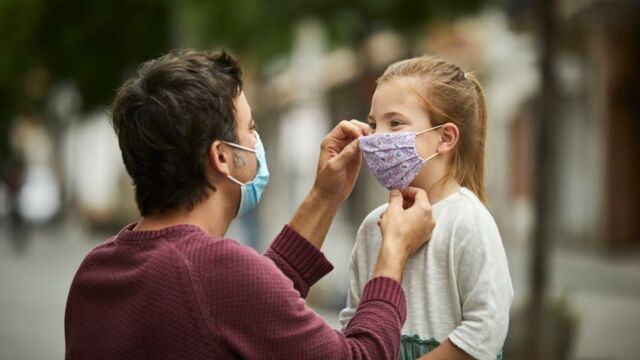Scientists have interviewed over 500 children who were admitted to a hospital in Moscow between April and August last year who had fallen ill with COVID. Results ultimately showed that some children were subject to persistent fatigue and other symptoms associated with Long COVID.
Discover our latest podcast
Children may have ongoing symptoms after a COVID infection
When the children were surveyed more than five months after, researchers discovered that over a quarter of them had been suffering from Long COVID, with the most common symptoms being fatigue, sleep disruption and sensory problems.
Among the 518 children who participated in the study, 16% suffered from fatigue soon after leaving the hospital, a figure that declined to roughly 10% seven to nine months later. More than 8% of children also had a loss of smell after leaving the hospital; this figure also fell over time to 6% up to seven months later. Parents of the children also reported that 7% of children suffered from sleep disturbances seven to nine months post-hospitalisation.
The preliminary work carried out in the International Severe Acute Respiratory and Emerging Infection Consortium (Isaric) study is not conclusive. Still, it builds upon evidence by the Office for National Statistics that suggests children may be able to develop Long COVID.
Additional work from the Isaric required parents to rate their children’s wellness before and after their stay in hospital. Children that did not show signs of long COVID rated roughly the same for wellness after being discharged; however, children that did show signs of Long COVID often rated worse. Dr Daniel Munblit, a specialist in paediatrics and allergy at Sechenov University in Moscow, revealed:
In some children, most definitely the parents acknowledge a reduction in wellness and I would think that to a certain degree it impacts on their daily life.
Although the results of the study are still not conclusive, Dr Munblit warns that both professionals and parents should not dismiss the prospect of Long COVID in children:
This shows that there is a problem. Fatigue is the commonest issue. We are not talking about fatigue for a day or two, we are talking about quite persistent fatigue and the cause of this fatigue needs to be determined.
Further study needs to be done
Hospitals in Sweeden and Italy have also recorded potential cases of Long COVID in children. However, much like the Isaric study, the research conducted only involved a single centre with a small pool of patients.
Small studies have already provided strong evidence of Long COVID in children, but larger-scale observations need to be done to determine how rare long COVID is for children. This will be the focus of a new large-scale study by UCL. Professor Stephenson will be leading the CLoCk Study, which will observe Long COVID in children aged 11-17 to determine risk factors, prevalence, the duration in which the condition lasts and how it may be treated.
Professor Stephenson discussed the process, which will take place over two years and will survey both healthy and COVID impacted children:
It is really important in science to ‘believe what you hear, not hear what you believe’ and so we plan to ask 3,000 children and young people to tell us about the impact of COVID-19 infection on their health over the next two years. We will also ask 3,000 young people who tested negative for COVID-19 the same questions.
He continued:
That will help us tease out whether ongoing problems are due to COVID-19 infection or due to COVID-19 lockdown, social isolation, and disruption of schools and friendships. There’s hardly any evidence or data from around the whole world about Long COVID in children and young people, and that’s why it’s vital that we do this research now.















